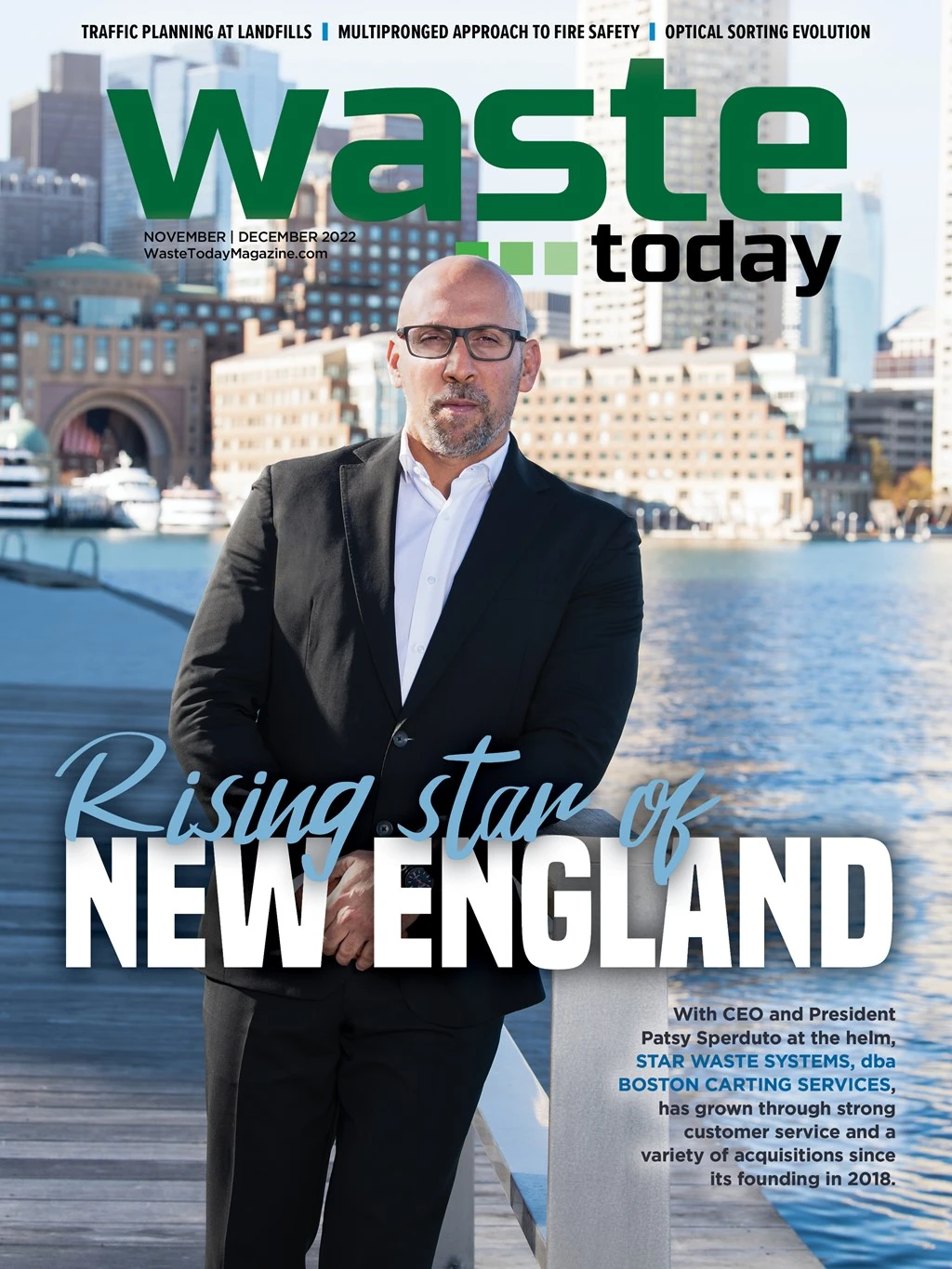

While 2022 was a big year for merger and acquisition (M&A) activity in the environmental services and waste sector, it was not quite as big a year as 2021, says Effram Kaplan, managing director and head of Environmental & Industrial Services at Cleveland-based Brown Gibbons Lang & Co. (BGL).
“2021 was an incredible year for overall M&A and is a tough [comparison], historically, for all sectors,” he says. “2022 remained strong, and we expect the same for 2023.”
While Kaplan says he believes investors’ interest in the environmental services sector is strong and perhaps growing, uncertainty caused by inflation could have dampened activity this year, at least compared with 2021.
“Capital markets don’t like uncertainty, and inflation invites uncertainty,” Kaplan says. “We also had a zero-to negative-interest rate environment for quite some time, and now we have a very quickly increasing interest rate environment, albeit with signs of the pace subsiding.”
The uncertainty surrounding interest rates has created a headwind for M&A activity, but Kaplan says that is offset to an extent by competition in the equity market, driving expected returns down.
Supply chain and workforce issues continue to challenge the waste and recycling industry, but Kaplan says those challenges do not appear to be slowing M&A activity.
“Capital is not much of an issue,” he says. “Availability of equipment and personnel are much more pronounced regarding inhibiting environmental firms from growing and taking advantage of increasing demand.”
While Kaplan says the capital market remains interested in environmental services, generally, companies within the environmental services industry are looking to create end markets for byproducts. An example is Republic Services’ partnership with Archaea Energy to transform landfill gas into renewable natural gas (RNG) and BP’s more recent acquisition of Archaea for $4.1 billion.
Archaea and Republic announced a partnership aimed at developing 39 RNG facilities in May, a deal the companies hope will generate 12.5 million British thermal units of RNG when built.
The RNG projects will take place at Republic landfills in 19 states, with construction slated to begin by the end of the year and completion planned in 2027.
Kaplan says he also sees investors and companies expanding into new areas that are less connected with their historic areas of interest.
“Investors that have historically focused on infrastructure, such as ports, highways, roads and rail, are now realizing the predictability and consistency in fixed, highly permitted, difficult-to-replicate services and assets that are prevalent in the environmental services market,” he says.
Kaplan cites Phoenix-based Republic’s acquisition of ACV Enviro as an example of the latter, an instance of a company entering a different area within environmental services. Rahway, New Jersey-based ACV Enviro focuses on hazardous waste, emergency cleanups and industrial services.
Canada-based GFL Environmental Inc.’s acquisition of Sprint Waste Services in May was a similar example of an environmental services company expanding into new services and end markets.
Houston-based Sprint Waste performs traditional recycling and landfill work but also provides wastewater residual service, vapor control for petrochemical companies and container washout services for companies transporting industrial and commercial waste. It serves the refining, petrochemical and manufacturing industries in addition to municipalities.
Another example of companies within environmental services collaborating was Camp Hill, Pennsylvania-based Harsco Corp.’s 2019 acquisition of King of Prussia, Pennsylvania-based Clean Earth Inc., a provider of United Nations-rated hazardous waste containers.
“2021 was an incredible year for overall M&A and is a tough [comparison], historically, for all sectors. 2022 remained strong, and we expect the same for 2023.” — Effram Kaplan, managing partner, BGL
Investors evolve with the industry
Kaplan says investors in waste and environmental service companies tend to focus keenly on the sector.“The private markets continue to evolve and attract sophisticated, sector-focused capital that has the ability to enhance their returns [more so] than what I would consider generalist investing, and that’s making the market more efficient,” he says.
Large fund houses have established specialized investment vehicles with a heavy emphasis on climate, impact investing and environmental, social and governance activity.
As the market for waste companies becomes “more efficient,” Kaplan says that creates a snowball effect in which different types of investors take a longer look at environmental services.
“As the risk profile of the private market decreases because of the efficiency of capital, more capital will come into the private market,” he says.
As the private market evolves and attracts a broader pool of capital, Kaplan says the gulf in valuation between private and public companies seems to be narrowing.
“The public market presents some unique benefits to companies that lead to a lower expected return than those in the private market,” he says. “But the spread has been narrowing for some time … and the efficiency of capital and control premium of the private market, in many situations, leads to a more favorable risk/ reward scenario than [in] the recent past,” he says.
The author is managing editor of Waste Today and can be reached at bgaetjens@gie.net.

Explore the November December 2022 Issue
Check out more from this issue and find your next story to read.
Latest from Waste Today
- Circular Materials expands recycling access in Canadian province
- Sebright Products Inc. transitions to 100-percent employee ownership
- Meridian Waste acquires Alabama hauler’s assets
- Recycle From Home adds another California city
- GFL Environmental outperforms expectations
- EREF expands PFAS literature review
- Pride Disposal puts first electric collection trucks to use
- MoistTech to highlight moisture control tech at WasteExpo





